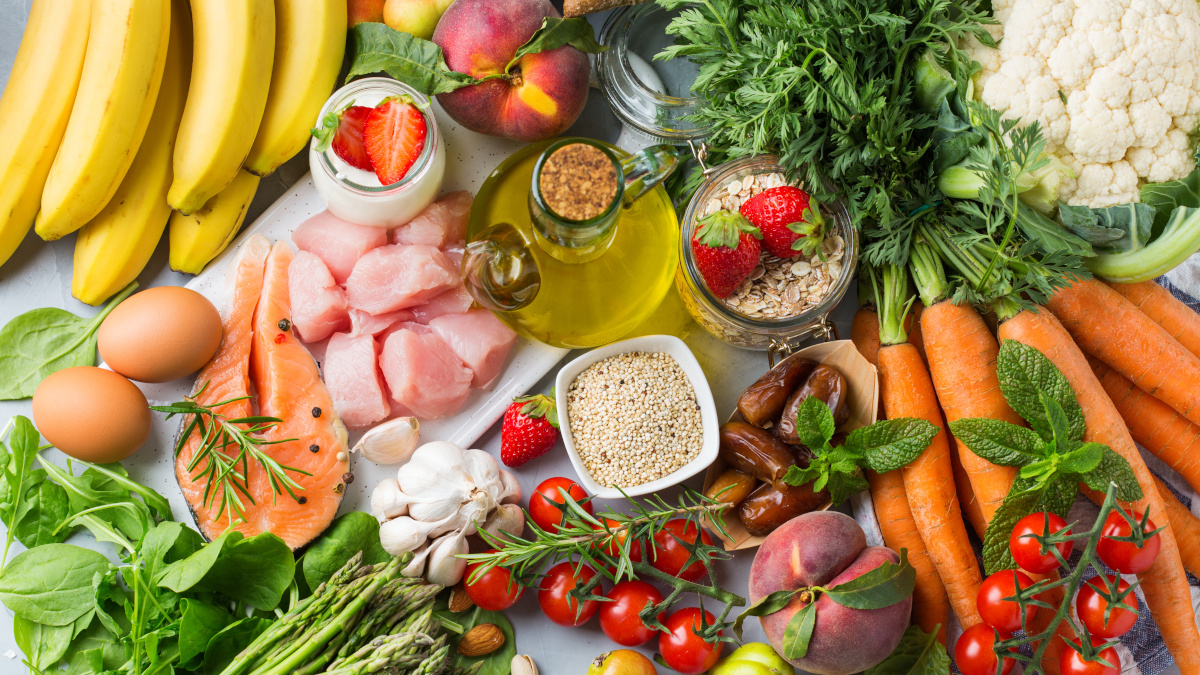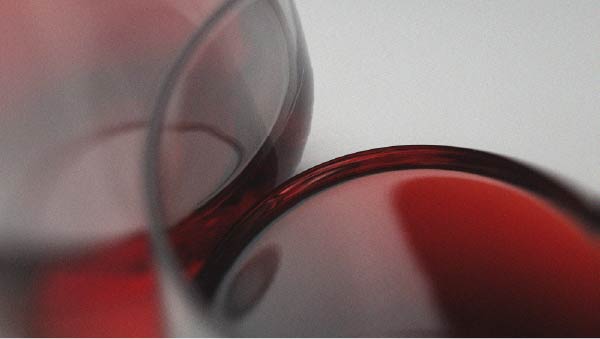Anti-hypertension DASH diet: principles and sample menus
Do you suffer from hypertension but want to avoid taking long term medication? Did you know you can lower your blood pressure by changing your dietary habits? That’s what DASH is all about. Read on for analysis and sample menus.

What exactly is the DASH diet?
DASH, or the Dietary Approach to Stop Hypertension, is a diet developed in the Nineties in the United States to counter the fast-rising problem of hypertension in the population.
It is based on the simple principle of eating more fruit and vegetables and less salt.
For maximum effect, the diet should be accompanied by regular exercise - 30-60 minutes a day of any kind of sport or physical activity, even simple walking.
Health benefits of the DASH diet
The DASH diet was primarily designed to reduce blood pressure (1) and thus improve the health of the cardiovascular system (2). However, its positive effects don’t stop there. Since it also encourages weight loss (3), it helps to combat obesity and all the problems associated with it.
As consumption of animal fats is restricted, it leads to lower cholesterol and triglyceride levels too (4). DASH has also demonstrated beneficial effects on insomnia (5), gout (6) and colorectal cancer (7).
Who can follow the DASH diet?
In theory, anyone can adopt the DASH diet. It’s a healthy way of eating and provides all the nutrients you need. Before launching into it, however, it’s important to consult your doctor in order to review your state of health. He or she will be able to advise you on any limitations in terms of your diet and potential return to physical activity.
DASH: foods to eat and those to avoid
To help you to understand the DASH diet better, here’s a table of the foods to eat and avoid.
| Permitted foods | Restricted foods |
|---|---|
|
|
DASH sample menu
The list of permitted foods above allows for a wide variety of different menus. To maintain it over the long term, it’s a good idea to discover and cook new dishes on a regular basis.
Your individual energy needs depend on your body type, gender and level of physical activity. To devise a menu with exact quantities, it’s best to consult a nutritionist. But to give you a basic idea, here’s a sample day’s menu (you’ll see that DASH recipes are pretty similar to those in a Mediterranean diet) :
| Breakfast | Lunch | Snack | Dinner |
|---|---|---|---|
|
|
|
|
Which supplements should you take to help look after your heart?
Caring for your heart and arteries can also encompass supplementation. Many plants and compounds play a role in maintaining a healthy cardiovascular system. Here are a few ideas to help you choose from the many supplements available.
Hawthorn (or Crataegus pinnatifida) is good for maintaining heart health (8), but that’s not all. It can also be used to support digestion and help treat a sluggish gut (9). It is found in several synergistic formulations (such as Tensix, which also contains magnesium, potassium, and celery seed extract ... or Cardio Booster, also rich in Q10, taurine and vitamin B12).
Have you head of golden root? Also known as Rhodiola rosea, this plant supports a healthy heart and cardiovascular system, as well as good physical and cognitive performance (10-12).
Another interesting plant is chestnut: it plays a role in maintaining a healthy heart and veins (13-14). For a simple, regular intake, take it in the form of capsules (such as the productHorse chestnut extract).
Finally, it’s well worth considering supplementing with omega-3 (EPA, DHA...). These essential fatty acids support the health of your heart, eyes and brain (15-19). They’re readily available in oily fish such as sardines, mackerel or the famous cod liver oil. Or to boost your omega-3 intake, choose supplements containing sustainably-sourced pure fish oil (such as Super Omega 3).
References
- Sacks FM, Svetkey LP, Vollmer WM, Appel LJ, Bray GA, Harsha D, Obarzanek E, Conlin PR, Miller ER 3rd, Simons-Morton DG, Karanja N, Lin PH; DASH-Sodium Collaborative Research Group. Effects on blood pressure of reduced dietary sodium and the Dietary Approaches to Stop Hypertension (DASH) diet. DASH-Sodium Collaborative Research Group. N Engl J Med. 2001 Jan 4;344(1):3-10. doi: 10.1056/NEJM200101043440101. PMID: 11136953.
- Yang ZQ, Yang Z, Duan ML. Dietary approach to stop hypertension diet and risk of coronary artery disease: a meta-analysis of prospective cohort studies. Int J Food Sci Nutr. 2019 Sep;70(6):668-674. doi: 10.1080/09637486.2019.1570490. Epub 2019 Feb 27. PMID: 30810409.
- Razavi Zade M, Telkabadi MH, Bahmani F, Salehi B, Farshbaf S, Asemi Z. The effects of DASH diet on weight loss and metabolic status in adults with non-alcoholic fatty liver disease: a randomized clinical trial. Liver Int. 2016 Apr;36(4):563-71. doi: 10.1111/liv.12990. Epub 2015 Nov 18. PMID: 26503843.
- Chiu S, Bergeron N, Williams PT, Bray GA, Sutherland B, Krauss RM. Comparison of the DASH (Dietary Approaches to Stop Hypertension) diet and a higher-fat DASH diet on blood pressure and lipids and lipoproteins: a randomized controlled trial. Am J Clin Nutr. 2016 Feb;103(2):341-7. doi: 10.3945/ajcn.115.123281. Epub 2015 Dec 30. PMID: 26718414; PMCID: PMC4733264.
- Rai S K, Fung T T, Lu N, Keller S F, Curhan G C, Choi H K et al. The Dietary Approaches to Stop Hypertension (DASH) diet, Western diet, and risk of gout in men: prospective cohort study BMJ 2017; 357 :j1794 doi:10.1136/bmj.j1794
- Rostami H, Khayyatzadeh SS, Tavakoli H, Bagherniya M, Mirmousavi SJ, Farahmand SK, Tayefi M, Ferns GA, Ghayour-Mobarhan M. The relationship between adherence to a Dietary Approach to Stop Hypertension (DASH) dietary pattern and insomnia. BMC Psychiatry. 2019 Jul 30;19(1):234. doi: 10.1186/s12888-019-2220-6. PMID: 31362734; PMCID: PMC6668174.
- Mohseni R, Mohseni F, Alizadeh S, Abbasi S. The Association of Dietary Approaches to Stop Hypertension (DASH) Diet with the Risk of Colorectal Cancer: A Meta-Analysis of Observational Studies. Nutr Cancer. 2020;72(5):778-790. doi: 10.1080/01635581.2019.1651880. Epub 2019 Aug 16. PMID: 31418286.
- Wang J, Xiong X, Feng B. Effect of crataegus usage in cardiovascular disease prevention: an evidence-based approach. Evid Based Complement Alternat Med. 2013;2013:149363. doi:10.1155/2013/149363
- EFSA Register of Questions - 2364
- Maslova LV, Kondrat'ev BIu, Maslov LN, Lishmanov IuB. O kardioprotektornoĭ i antiadrenergicheskoĭ aktivnosti ékstrakta rodioly rozovoĭ pri stresse [The cardioprotective and antiadrenergic activity of an extract of Rhodiola rosea in stress]. Eksp Klin Farmakol. 1994 Nov-Dec;57(6):61-3. Russian. PMID: 7756969.
- Li Y, Pham V, Bui M, et al. Rhodiola rosea L.: an herb with anti-stress, anti-aging, and immunostimulating properties for cancer chemoprevention. Curr Pharmacol Rep. 2017;3(6):384-395. doi:10.1007/s40495-017-0106-1
- EFSA Register of Questions – 2659
- EFSA Register of Questions – 4058
- Pittler MH, Ernst E. Horse chestnut seed extract for chronic venous insufficiency. Cochrane Database Syst Rev. 2012;11(11):CD003230. Published 2012 Nov 14. doi:10.1002/14651858.CD003230.pub4
- Schwalfenberg G. Omega-3 fatty acids: their beneficial role in cardiovascular health [published correction appears in Can Fam Physician. 2006 Aug;52:952]. Can Fam Physician. 2006;52(6):734-740.
- Gutiérrez S, Svahn SL, Johansson ME. Effects of Omega-3 Fatty Acids on Immune Cells. Int J Mol Sci. 2019;20(20):5028. Published 2019 Oct 11. doi:10.3390/ijms20205028
- Proudman SM, Cleland LG, James MJ. Dietary omega-3 fats for treatment of inflammatory joint disease: efficacy and utility. Rheum Dis Clin North Am. 2008 May;34(2):469-79. doi: 10.1016/j.rdc.2008.03.003. PMID: 18638687.
- Hodge W, Barnes D, Schachter HM, et al. Effects of Omega-3 Fatty Acids on Eye Health: Summary. 2005 Jul. In: AHRQ Evidence Report Summaries. Rockville (MD): Agency for Healthcare Research and Quality (US); 1998-2005. 117. Available from: https://www.ncbi.nlm.nih.gov/books/NBK11888/
- Dyall SC. Long-chain omega-3 fatty acids and the brain: a review of the independent and shared effects of EPA, DPA and DHA. Front Aging Neurosci. 2015;7:52. Published 2015 Apr 21. doi:10.3389/fnagi.2015.00052
Keywords
2 Hours
Simple and quick :-)
My order was delivered quickly, and I'm satisfied with the product! It was lot less fuss compared with some things I've ordered.
DEL Jacqueline
4 Hours
Excellent quality products & customer…
Excellent quality products & customer service & care …thank you!
Giovanna Escalera
1 Days
great experience
Easy ordering, fast deliver, very professionally.
Natasa
5 Days
this company and its products are…
this company and its products are perfect: I have been their customer for three years , prices are reasonable for the high quality they offer , the products are of very good quality not just plainly "normal" , delivery is quite fast. we are very satisfied with them.
Gabriel Diacakis
5 Days
TOP service TOP products will buy again…
TOP service TOP products will buy again and again
PINOTTI Giorgio
7 Days
Trustworthy company with tested products
Trustworthy company with tested products
Trusted
11 Days
Efficiency and speed
Efficiency and speed
Cuccie
13 Days
GOOD BRAND IN FOOD COMPLEMENTS
GOOD BRAND IN FOOD COMPLEMENTS - SERIOUS WITH GOOD DOCUMENTS AND DETAILS SCIENTIST. AND SERIOUS HONNEST COMMERZIALISATION. I HAVE TRUST IN THEIR PRODUCTS.
FENOGLIO Guy
15 Days
Very good experience
Very good experience, the products arrived in time, in perfect condition and are good quality. Thank you.
GABI TIRCOCI
20 Days
very good expereince
very good expereince
Jelena Đaković
20 Days
Very good products.
Very good products.
Agnes BENDSAK
23 Days
Just OK
Just OK, ordering from company for many years and being safisfied
Lynn Mae
23 Days
Recomendo
Produtos encomendados são recebidos atempadamente e de acordo com o anunciado! Muito satisfeita!
Carla Sofia
24 Days
Everything is great!
Everything is great!
Jonas
29 Days
The delivery was fast and the product…
The delivery was fast and the product is great
SOMMARIVA Gianni
of experience
your money back
##montant## purchase




